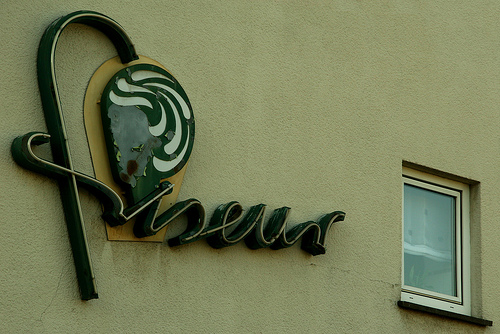twisting the meaning

The “Deutsche Sprachrat” (german language council) is holding a competition for collecting german words, which diffused into other languages – sometimes by acquiring a new meaning in the process.
If you submit a german word (the website is idiotically only in german) by the end of september you can win a trip to Berlin. :)
typical examples are japanese: arubeito (from arbeit=work, new meaning:student job) french: vasistas (from: was ist das = what is this, new meaning: borrowed light), english: blitz (from blitz = lightning, new meaning: see here).
The Berlin dialect is quite full of words with foreign origin – besides english mostly jiddish and french (due to the napolonic occupation and the Huguenots, who brought a cultural boost to Berlin) and of course russian. So already for that reason some Berlin words are hard to understand for the rest of Germany.
And sometimes it is even simpler to produce a new meaning: E.g. Berliners often just add a foreign ending like -age (from french) and -ik (from russian) to german words like “futter” (futter=animal food, futterage=doubtful food ((speak: footerawsha)– making it better with a french ending:)) or “kaputt” (kaputt=out of order, Kaputtnik=a person who has a lot of problems) …
The above word “friseur” by the way means coiffeur.
(image from flickr)